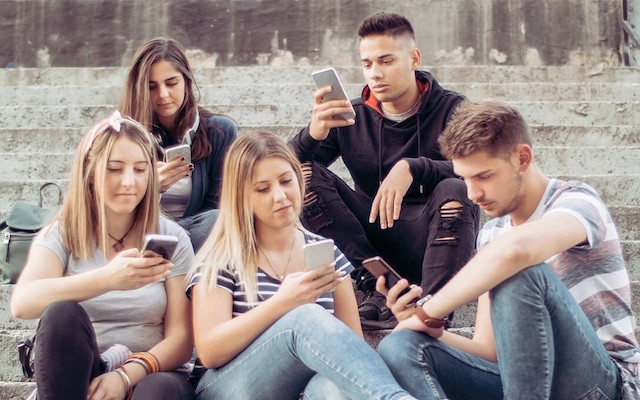
In the digital era, where smartphones are as ubiquitous as the air we breathe, a new phenomenon has emerged—’phubbing.’ Coined from the words ‘phone’ and ‘snubbing,’ phubbing is the act of ignoring someone in a social setting by busying oneself with a phone or other mobile device. This seemingly innocent act might have deeper impacts on our social lives and mental health than we might think.
Understanding Phubbing
Phubbing is more than just checking a text or taking a quick call when you’re with someone. It’s the continuous use of a mobile device in the presence of others, leading to a sense of distraction, disengagement, or neglect. It’s that moment when a dinner conversation comes to a halt because someone decides to scroll through their social media feed, or when a one-on-one meeting turns into a monologue because the other person is engrossed in their phone.
The Social Implications of Phubbing
Most of us at some points have been guilty of phubbing. I know I have. My girlfriend is probably the queen of phubbing and I find it super annoying and rude, yet it’s become some common that I see it all the time with other people in other social situations that it’s almost become the norm to see people’s faces buried in their phone screens instead of making eye contact with those around them.
While phubbing might seem harmless—after all, everyone uses their phones, right?—its impact on our social interactions is profound.
Damage to Relationships
In interpersonal relationships, phubbing can create a sense of disconnect and dissatisfaction. It sends a non-verbal message that the phone is more interesting or important than the person present. This can result in feelings of neglect, leading to conflicts and strain in relationships. As I said, my girlfriend is extremely guilty of this, but she has also called me out when she’s caught me doing it as well so it’s something i have to work on too.
Impact on Communication
Effective communication involves not only verbal cues but also non-verbal ones such as facial expressions, body language, and eye contact. Phubbing disrupts this communication dynamic, leading to misunderstandings and a lack of depth in conversations.
Influence on Social Behavior
As phubbing becomes more commonplace, it subtly alters our social norms. The perceived acceptability of phone use in social settings increases, leading to a cycle where phubbing begets more phubbing. Have you ever been in a situation where you are trying to be engaging but everyone else seems to be more into their phones, so you pull your phone out too? I know I have.
The Psychological Impact of Phubbing
Beyond its social implications, phubbing can also have adverse effects on mental health.
Lower Self-Esteem
Being on the receiving end of phubbing can cause a decline in self-esteem. When someone prioritizes their phone over our company, it can make us question our self-worth and value in that relationship.
Increased Feelings of Loneliness
Even though one might be physically present with others, phubbing can cause feelings of isolation and loneliness. This feeling can be even more pronounced in group settings where multiple individuals engage in phubbing.
Heightened Stress and Anxiety
Witnessing others engage in social media or other online activities while phubbing can lead to increased feelings of stress and anxiety, particularly if it triggers comparisons or fear of missing out (FOMO).
Addressing the Issue of Phubbing
Phubbing is a modern-day challenge that requires contemporary solutions. Here are a few strategies to tackle phubbing:
Digital Detox
Periodically disconnecting from digital devices can help individuals become more present in their real-world interactions. This doesn’t mean abandoning technology altogether but using it consciously and sparingly in social settings.
Setting Clear Boundaries
Creating ‘phone-free’ zones or times, like during meals or meetings, can help reduce phubbing. Make these expectations clear to everyone involved to foster mutual respect and engagement.
Leading by Example
Sometimes, the best way to encourage others to put their phones down is to lead by example. Show your friends, family, and colleagues that you prioritize their company over your phone.
Conclusion: Building Conscious Connectivity
Phubbing, despite being a product of our digital age, is a social issue at its core. It brings to light the need for mindful use of technology, particularly in social settings. By becoming more conscious of our tech habits, we can combat phubbing and foster more meaningful, engaging interactions. After all, our phones are meant to connect us, not isolate us from the people in our immediate vicinity.